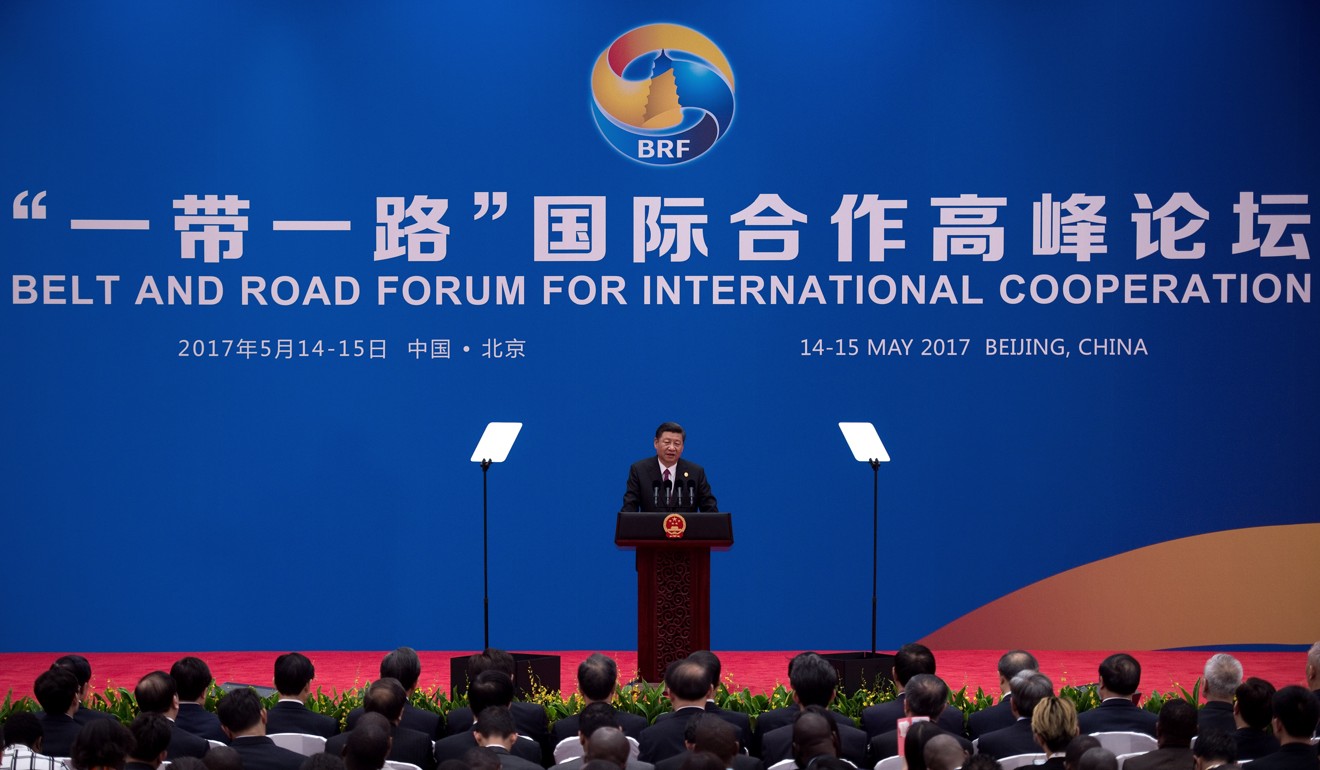
China wants US firms to join Belt and Road Initiative despite Washington’s doubts over project
Beijing tries to generate interest in flagship scheme as it seeks support from American businesses amid ongoing trade tensions
China wants to invite more American firms to participate in its transcontinental Belt and Road Initiative as it seeks more support from US business leaders amid its ongoing trade dispute with Washington.
The decision to invite both US and Chinese companies to discuss the infrastructure initiative in the States in November follows two days of dialogue between officials and companies from the two countries in Beijing earlier this week.
Wei Jianguo, a former deputy commerce minister and now a vice-chairman of the government-backed China Centre for International Economic Exchanges, which organised this week’s discussions, said some of the Americans involved had expressed an interest in Belt and Road projects.
“Even though the US government is worried about the initiative, US companies want to know more about it,” Wei said.
The Belt and Road Initiative, one of President Xi Jinping’s signature policies, involves a grand plan to boost trade and infrastructure connections across Asia, Europe and Africa.
The US and other Western governments have displayed growing concern about whether Beijing is using it to extend its geopolitical influence and have also questioned how transparent the financing of some of the projects is.
But Wei suggested companies from both nations could work together to build infrastructure in less-developed countries.
For example, he said, US companies could supply the equipment needed for the projects, while other areas of cooperation could include agriculture and the financial sector.

Lu Xiang, a US affairs specialist at the Chinese Academy of Social Sciences, said the US business community was generally positive towards China and the Chinese economy, although some enterprises were more supportive of the protectionist stance the current White House has taken.
“The overall community supports the Belt and Road Initiative,” he said.
“I think it will have a very positive impact for Sino-US relations, after the US government threatened tariffs and other one-sided trade measures.
“[The forum] will allow the US and Chinese business communities to have more exchanges, and give US businesses a better understanding of the details of the Belt and Road Initiative, which I think will be very positive.”
Wei Zongyou, a specialist in relations between the US and China at Fudan University in Shanghai, said that some US multinational companies had already participated in Belt and Road projects and gained orders from them.

Despite his administration’s doubts about the initiative, US President Donald Trump’s business empire has now become linked to it.
Last week Indonesia’s MNC Land, a developer with links to Trump’s own businesses, signed a deal with a subsidiary of the state-owned Metallurgical Corporation of China to build a theme park in Lido outside Jakarta in a project that falls under the Belt and Road’s umbrella.
The theme park – could be backed by up to US$500 million in Chinese government loans – is part of wider development that includes a partnership with the Trump Organisation – now run by the president’s sons – to build Trump-branded hotels, residences and a golf course, as well as other hotels, shopping and residential developments.
Both MNC Land and MCC have insisted that there is no connection between the theme park and the Trump Organisation.
So far the US has declined to join the Beijing-led Asian Infrastructure Investment Bank, which has funded some of the Belt and Road projects.
Gregory Moore, an international relations professor at the University of Nottingham in Ningbo, said the US government’s concerns about China using Belt and Road projects to extend political influence were valid, since many of the enterprises involved in the projects were state-owned and could not be politically neutral.
“That’s how China does business: all business through politics,” he said. “China uses trade and business deals for political purposes.”


